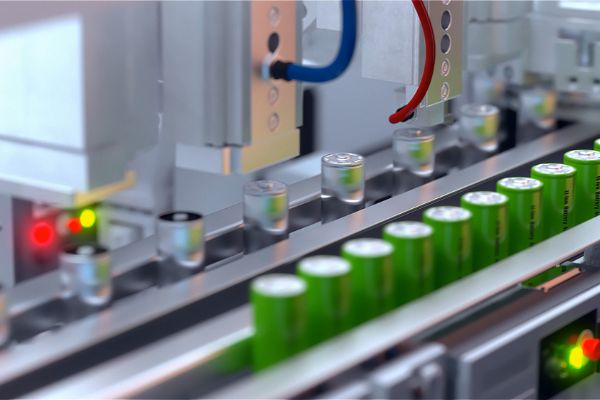A $9.2 billion loan meant to aid in the development of three electric car battery factories in the United States would result in Ford receiving the largest government cheque for an auto manufacturer since the 2009 bailouts.
According to Bloomberg, a financial loan from the Biden administration aims to support American manufacturers in their competition with Chinese automakers for green technology and assist the sector in achieving Biden’s audacious goal of electrifying 67% of all commercial passenger cars produced in the US by 2032. In a project named BlueOval, Ford is collaborating with the South Korean battery manufacturer SK On Co. to construct three battery factories in Tennessee and Kentucky.
According to Reuters, “Ford Treasurer Dave Webb stated that cooperation between the public and private sectors has traditionally sped up significant technological shifts.”
The EPA’s Advanced Technology Vehicles Manufacturing (ATVM) credit program is the source of Biden’s pledge to Ford. The loan will be the biggest ever made in the program’s history. According to the Energy Department, Ford and SK have already begun construction on the battery production plants that will generate over 120 gigawatt hours yearly. According to Bloomberg, BlueOval received subsidies from the state governments of Kentucky and Tennessee before securing the hefty loan coming from the federal government, so taxpayers would bear the majority of the expense.
Some people were upset by the federal government’s intervention in the free market to encourage EVs, and they criticized the multibillion-dollar loan. Steven Milloy, an attorney and senior policy scholar at the Energy & Environment Legal Institute who was a member of the transition team for former President Trump, questioned why the EV industry needed so much assistance from the government.
“If electric vehicles (EVs) are so amazing, why do Ford and its South Korean partner require a $9.2 billion loan from the government to construct battery plants?” Tweeted Milloy. “Why On Earth doesn’t the ESG cartel provide funding for them?”
Ford hopes that it can produce as many as two million electric vehicles by 2026. Ford estimated that the EV push will cost the business $3 billion through 2023 despite producing 132,000 EVs last year. In terms of EV sales in the US, the firm is still much behind Tesla, which Elon Musk founded. When Tesla first launched in 2003, it incurred losses for ten years until making a profit in 2013. A remarkable increase from $5.5 billion in 2021 to $12.6 billion in 2022 was accomplished by Musk’s business.





Comments are closed.